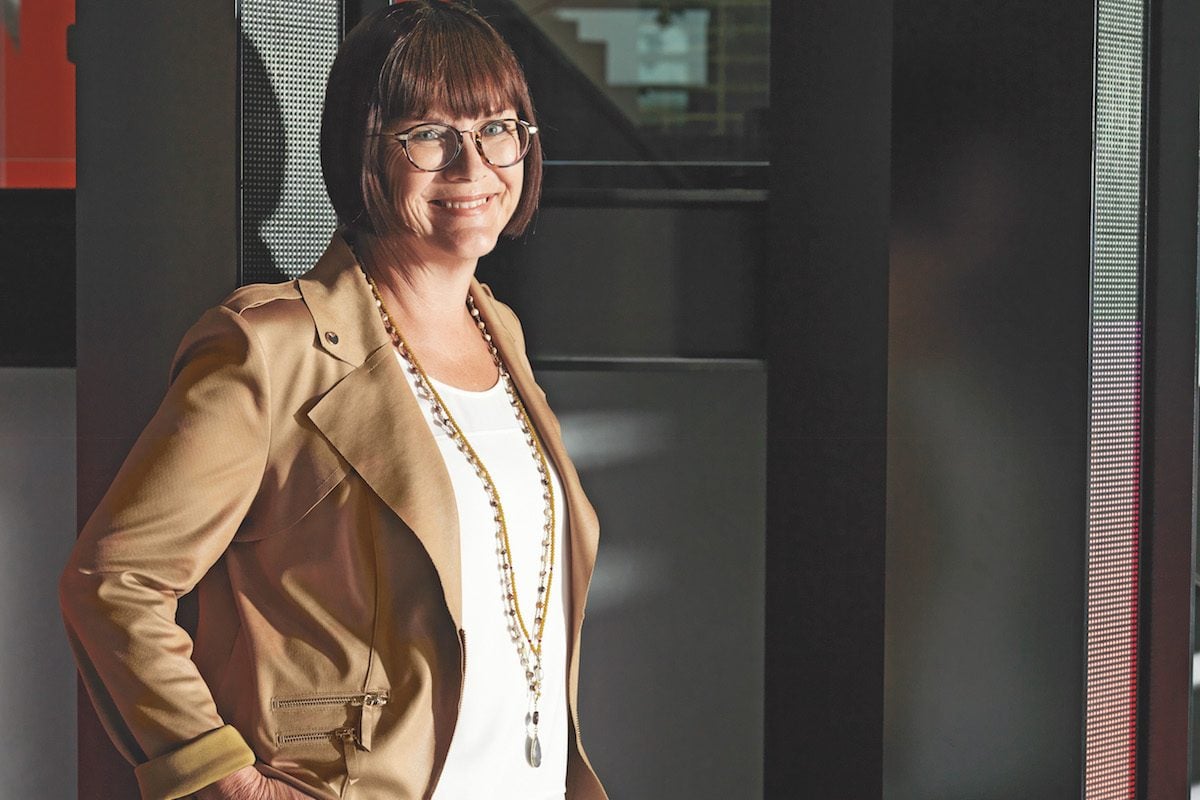The Gift of Life: Shelly Park
Australian Red Cross Blood Service Chief executive Shelly Park wants to educate people on the world’s most precious resource.
For most people, the phrase "precious resource" brings to mind water, or perhaps gold. Shelly Park, Chief Executive of the Australian Red Cross Blood Service, developed an understanding of blood’s value as a resource at the start of her career as a nurse in New Zealand.
"I used to handle blood to care for the patients, but didn’t think much about how the blood came to us," she admits. "As I moved into management, I became aware of the cost and how special it was. We needed to keep blood safe."

Some years later, after working her way up to an executive position, Shelly decided she should use her platform to call for improved local health services. "I always knew that we needed to disrupt ourselves as an industry," she reflects. "I wanted to get into positions where I could influence and support our wonderful health services but also disrupt them to improve them.
"I spent 10 years at Monash Health in Victoria, with glimpses into how the Blood Service works. I saw how unique it was, and the brilliant leadership that moved the organisation forward. I feel incredibly lucky to have joined the team in 2016 and my passion has only grown since I started."
"I feel incredibly lucky to have joined the team … and my passion has only grown since I started."
The safety and quality of blood is the company’s core work. Blood components come in different forms: whole blood, plasma, platelets and tissue. "The public and healthcare community expect every part of the journey to be 100% safe," Shelly says. "Identifying and managing risks and hazards is the basis of what we do."
Shelly prioritises visiting the Blood Service ’s staff working in donation and manufacturing centres around Australia, emphasising clear and consistent communication between the leadership team and its employees. "It’s all about people," she explains.
"We actively encourage people to challenge the status quo. We want people to feel empowered to take action. I maintain an open-door policy, and I want to hear the opinions of our workforce."
With human life in its hands, the Blood Service must do everything with excellence or the consequences could be fatal. "It’s our job to stay focused on the outcome through every process," Shelly says.
"It may be through blood donation for a trauma victim, an organ donation, or human milk for a vulnerable, premature baby – a service we now provide through our recently established Milk Bank to neonatal intensive care units in South Australia and New South Wales. We strive for the highest calibre in all we do. We are accountable to the community for our actions."
"We strive for the highest calibre in everything we do. We are accountable to the community for our actions."
The organisation rests on three pillars: improve, build and grow. As a believer in strong leadership, Shelly trusts that corporate governance, financial management and good recruitment will move the business forward. "It’s critical to have a plan that everyone can work towards," she asserts.
"We are clear about our goals. Our leadership team makes sure the employees know how their efforts are contributing to the Blood Service. "The principles and values that embody the organisation are our culture.
These are elements we aim to demonstrate at all times. We’re constantly evolving the strategy for our culture, and it’s important to have the conversations around it, even if they are difficult. We’re privileged to have many people working with us because they believe in what we do."
Its most challenging duty is working to gain the public’s interest in blood donation. While one in three of us will need blood or blood products in our lifetime, only three per cent of the Australian population donates blood.
In the last financial year, the organisation welcomed almost 90,000 new blood and plasma donors, a feat of which Shelly is proud. "We are not only attracting new donors, but we maintain those donors – a necessity for ensuring Australia’s blood supply."
Shelly attributes this success to two main tactics. First, the two new Plasma Donor Centres that were opened in Canberra and Townsville. "These have been purpose-built to encourage more donors, to improve their frequency of donations and help us reduce the cost of collection," she explains. "Both these centres are exceeding targets."
Second, Shelly and her team have changed their approach to marketing, launching a new national campaign aimed at reminding people of blood’s finite shelf life and the need to donate regularly.
"We built the campaign on the cult number of 42, thanks to The Hitchhiker’s Guide to the Galaxy, which is also the number of days red blood cells last," she says. "It’s been successful in engaging with donors, as we try to educate people on the realities of blood supply."
Every organisation faces its own set of challenges, but the Blood Service has significantly improved the way it operates. "We’re providing a greater contribution to Australia’s health care," Shelly notes.
"We supply blood and offer world-class research. Sometimes, we take our challenges through a vigorous research cycle to find the answers. This way, we can manage them well."
The business is set to celebrate its 90th anniversary this year. As chief executive of the household name, Shelly’s priority and motivation are human beings. "It is our privilege and responsibility to be entrusted with linking the priceless gift of a donor to the needs of a fellow human being," she says. "I also believe in the passion of our people, and a team that keeps you accountable.
Throughout my career, I have believed in developing yourself and learning from others. Working with people who continue to challenge you."